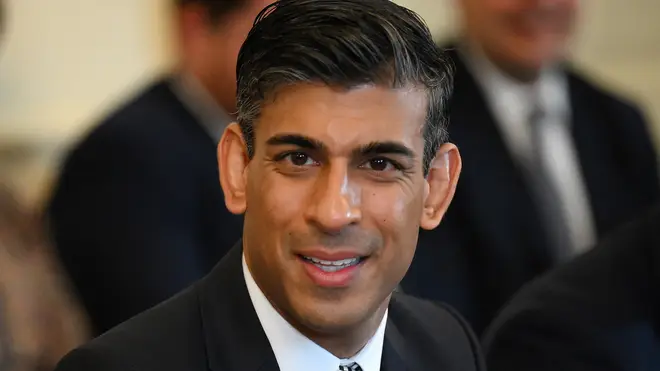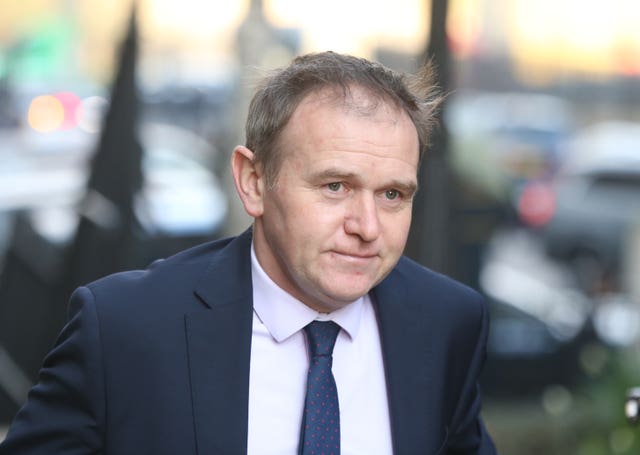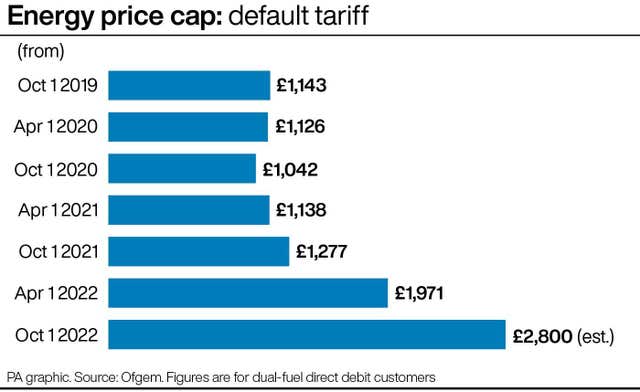
Paul Brand 7am - 10am
25 May 2022, 10:54

Chancellor Rishi Sunak is expected to unveil a package of help to address the cost-of-living squeeze within days.
Rishi Sunak has to tread a “very difficult path” to make sure his forthcoming plan to alleviate the cost-of-living crisis does not further drive up inflation, a Cabinet minister said.
The Chancellor is expected to unveil a multibillion pound plan this week as the Government seeks to draw a line under the partygate row and focus on the squeeze in living standards caused by soaring inflation.
Environment Secretary George Eustice said “we may hear more this week” from the Chancellor.
But he told LBC: “We are treading a very difficult path here because if we just borrow lots more money and throw it at the situation we could compound inflation, we could make the situation worse and see prices rise further.
“So we have got to try to dampen that inflation and that means showing some restraint but, equally, helping people, particularly those on the lowest incomes, who will struggle with some of these price rises.”

Mr Eustice, whose portfolio includes the food industry, suggested consumers are already switching to cheaper brands to cut their grocery bills.
He previously suggested that is a way to save money but insisted: “I wasn’t lecturing or telling anyone what they should do.
“What I was pointing out is that last time we had this price spike, in 2008, what actually happened was that household spending on food didn’t rise by as much as food prices and that’s because people did change their shopping habits, they bought different items and in some cases, yes, they downtraded to some of the value brands.
“That’s just an observational comment; it’s what some families did in 2008 and it is what people will be doing now.”
As well as food, the cost-of-living squeeze is being driven by soaring energy prices.

Ofgem chief executive Jonathan Brearley told MPs on Tuesday the regulator is expecting the energy price cap to increase by a further £830 to £2,800 in October.
He said this is due to the market coping with “once-in-a-generation” price changes “not seen since the oil crisis of the 1970s”.
Reports have suggested Mr Sunak plans a new windfall tax on oil and gas firms to help fund support for those who are struggling – an option previously suggested by Labour and some senior Tories.
There has also been speculation the tax could extend to electricity generators.
But the chief executive of energy company SSE Alistair Phillips-Davies told BBC Radio 4’s Today programme: “I don’t think this Government is going to impose a windfall tax on successful sectors that are delivering for the UK and creating jobs and making sure that we avoid these crises in the future by bringing in lower-cost energy from indigenous sources.”
Measures thought to be under consideration to help the poorest households could include increases in the Warm Homes Discount Scheme, winter fuel allowance and a further cut in council tax, while a VAT cut is said to be being mooted.
A Government spokesman said: “We understand that people are struggling with rising prices, and while we can’t shield everyone from the global challenges we face, we’re supporting British families to navigate the months ahead with a £22 billion package of support.
“That includes saving the typical employee over £330 a year through a tax cut in July, allowing people on Universal Credit to keep more of the money they earn – benefiting over a million families by around £1,000 a year – and providing millions of households with up to £350 each to help with rising energy bills.
“The Chancellor has been clear that as the situation evolves, our response will evolve – and we stand ready to do more.”